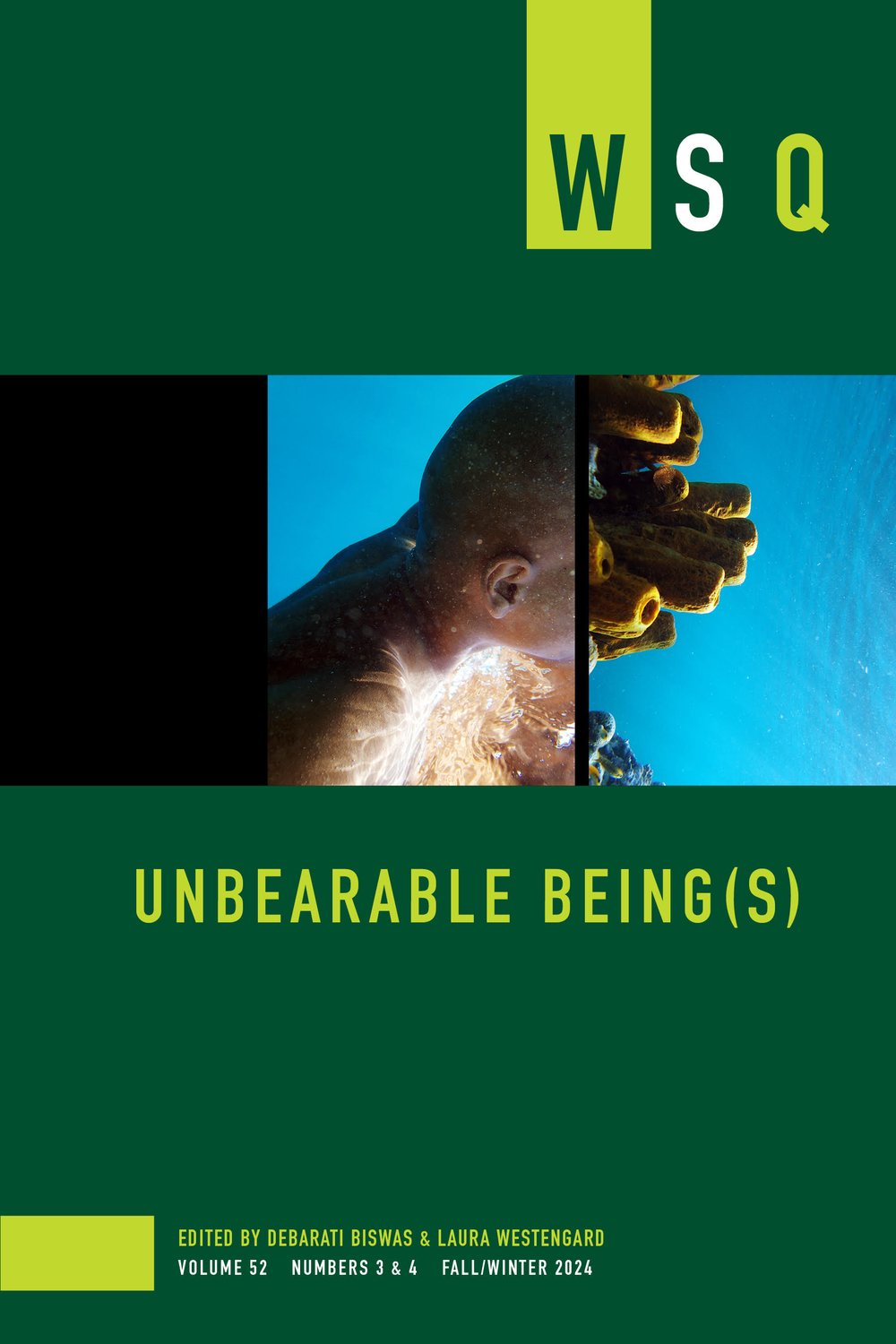Unbearable Being(s)
Unbearable Being(s)

“Unbearable beings” are the subjects who inhabit abject and/or revolutionary positions in relation to the sociopolitical apparatus and offer alternate possibilities of living and being in this world. On the other hand, “unbearable being” is an affective state of being and becoming that indexes the intolerableness of existence within the normative.
Treated as the refuse of urban renewal and gentrification, and/or displaced by environmental crises, wars, and ongoing legacies of settler colonialism and extractive capitalism, marginalized subjects have, however, fostered socialites in spaces deemed unhomely and unclean and have effected enormous sociopolitical changes over time. How do abject spaces—prisons, hospitals, segregated housing projects, war-torn zones, disaster sites, nightclubs, single-room occupancy hotels, digital spaces, and other similar sites—function as generative locations for the creation of alternate socialities?

Debarati Biswas (she/her) is an assistant professor of African American studies at New York City College of Technology, CUNY. She is currently writing a book about the affective and embodied dimensions of Blackness and queerness in carceral spaces—prison, inner city, and single-room occupancy hotel—in African American men’s literature. She serves on the board of directors of CLAGS: The Center for LGBTQ Studies, and sits on the editorial board for the journal WSQ: Women’s Studies Quarterly. Her writing appears in or is forthcoming in Social Text, Public Books, and Teen Vogue. Biswas has also coproduced an award winning docufictional webseries, Three Trembling Cities, on immigrants of color in NYC.
Laura Westengard (she/they) is an associate professor of English at New York City College of Technology, CUNY, where she is the coordinator of the interdisciplinary minor in Gender & Sexuality Studies. She serves as board cochair of CLAGS: The Center for LGBTQ Studies and sits on the editorial board for the journal WSQ: Women’s Studies Quarterly. Her book, Gothic Queer Culture: Marginalized Communities and the Ghosts of Insidious Trauma, was released in 2019 by University of Nebraska Press as part of the Expanding Frontiers series. The book shows how queer culture adopts gothicism to challenge heteronormative and racialized systems and practices, and to acknowledge the effects of microaggression and insidious trauma on queer communities.
